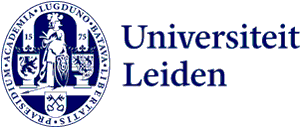
President Annetje Ottow helps fish plastic out of the canal
Every Sunday you can help fish plastic and other floating garbage out of the Leiden canals. You can use your own canoe or loan one from Plastic Spotter and join the garbage-fishing fleet. Annetje Ottow, President of Leiden University, was one of the crew on Sunday 4 July.
‘Sustainability is a very important issue for me,' is how Annetje Ottow, President of the Executive Board of Leiden University, explains why she took part in the collecting of floating garbage. ‘Plastic Spotter combines practice and science and gets the city's residents involved as well. They focus attention on the pollution itself and also on the source of the pollution. By tracing the source, Plastic Spotter has already brought about concrete measures to reduce the floating garbage.'
One example is the deposit on disposable cups at major events, such as the 3 October celebration. Plastic Spotter has already carried out a study on the feasibility of plastics-free terraces.
Ottow also commented: 'I learned a lot and it was wonderful to see how enthusiastic the Plastic Spotter volunteers are!! I hope I can join them more often. Good examples like this are an incentive for others to follow suit.'

Garbage fishing on Sunday
It may be officially banned, but people are swimming again in the Leiden canals and streams. Because of the good water management, the water is full of marine life, but there are places where there is a lot of plastic and other garbage in and on the water. The aquatic animals have had their fill of it and it's unsightly. That's why Plastic Spotter with its fleet of canoes goes out every week fishing garbage out of Leiden's canals. You can join them every Sunday throughout the year from 11.00 to 15.00, with your own canoe, kayak or paddleboard, or you can loan a canoe from Plastic Spotter. Everything else you need, such as grabbers, garbage sacks and gloves, is provided. Want to sign up straight away?

Did you know that…
- one cigarette stub pollutes litres of water with plastic, arsenic, lead and other toxins?
- volunteers found a fish trapped inside a disposable corona glove and that a photo of the fish went all around the world, published by CNN and the Guardian and even National Geographic?
- the best finds by the canoe fleet are on display 24/7 in the window exhibition of the bridge house on the Mare bridge in Leiden?
- in the seven days of winter that we had last February, the Leiden snow sweepers not only swept, but also left behind over ten thousand poisonous green plastic hairs from their brushes?
- on 15 March 2020 the most expensive find to date was made by the garbage fishers: a 6,000 euro bicycle that was returned more or less unscathed to the ecstatic owner?
Analysis of the floating garbage
- Every session generates a lot of bags of rubbish. But there are two sides of the story: on the one hand, every week a mass of garbage is taken out of the water, and on the other hand more than four hundred Plastic Spotter volunteers, including Leiden biologists Auke-Florian Hiemstra (Naturalis) and Liselotte Rambonnet (Leiden University), analyse the garbage. The aim is to trace the sources and deal with the problem at the source. This way they ensure structurally that less plastic ends up in the canals.

Canoes to be banned from the canals?
Hiemstra and Rambonnet welcomed Ottow on 4 July and showed her the ropes. Later, the biologists explained that the future of garbage fishing by the fleet of canoes is uncertain: a new municipal policy means that the canoes need a mooring licence, which they haven't been able to get so far. This Thursday the local council will decide whether or not to ban the canoes from the centre of Leiden. 'We've always said that we will only stop when there's no more plastic in the water,' says a somewhat dejected Hiemstra. 'I hope the town council chooses for clean canals and the canoe fleet can continue its work.'
Plastic Spotter was set up by Rambonnet and Hiemstra and others in 2019, the year that Leiden University celebrated its 444-year anniversary. The initiative was awarded a subsidy by the university and the municipality of Leiden as part of the celebration of the university's foundation. Plastic Spotter is now funded by several companies and institutions.



Text: Corine Hendriks
Photos: Marc de Haan
